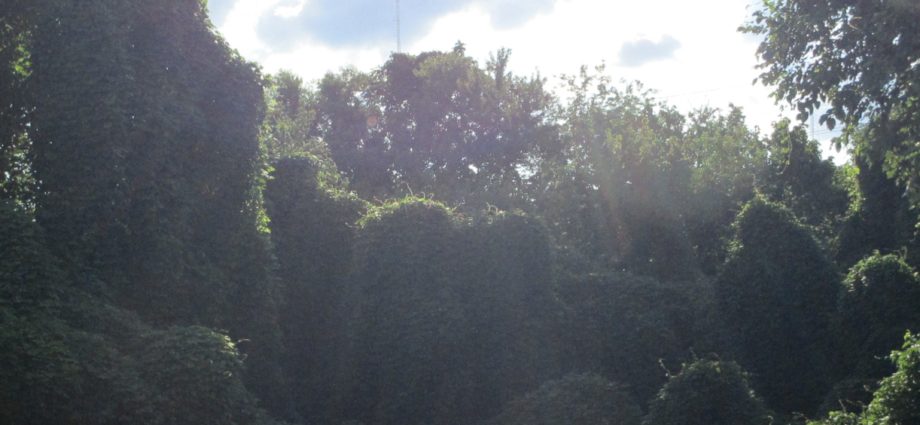Its own metaphor
for ineradicable nuisance,
it plays at the mind’s edges,
encroaching in the dullest greens,
doffing the hat of a rude guest,
last to leave the party.
In some distant country
it could be haiku
climbing the walls in search
of obscure interpretations, its
tendrils reaching for meaning
beyond the obvious, clinging
to an oversight in plain view.
It could be, but isn’t,
for the fact of its being here now. Not even
a venerable lineage can rescue
it from the incarnation
it assumes as a roadside
beggar, reminder of mistakes
made by letting strangers
get too close to us
for our own good.
On closer look
it becomes what we most
despise: something unnameably
near, confounding us with its
ability to make vague silhouettes
of familiar landmarks or
bloat the once-solid shapes
of signs lending geometric certitude
to all our directions.
How many are the recipes
for disaster in kudzu and
its kindred family of upstart
weeds, growing luxuriantly,
nudging us ever closer
to the spot where a
wheel hangs precariously
before leaving the road.
Only in an instant
of hovering do we discover
that an unwanted child
now hugs the land
with suffocating familiarity,
demanding to be noticed
if only to affirm the insanity
of our wish to forget
what can’t be tamed.

This is a beautiful piece, Ed, in that it captures that innate nature we (as Southerners and humans in general) often have to “forget what can’t be tamed,” as well as our inclination to ignore all that is “other.” My husband and I recently hosted some friends from Australia who inquired about kudzu. “What is this lush, lovely vine that grows everywhere all over Knoxville?” they asked. When we explained the history of kudzu (in brief), they were not so certain of its beauty any longer. Thank you for sharing such a moving poem.
I’ve been using this very rich poem in my classes.